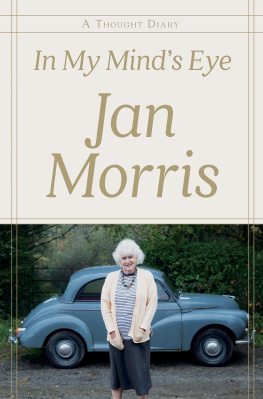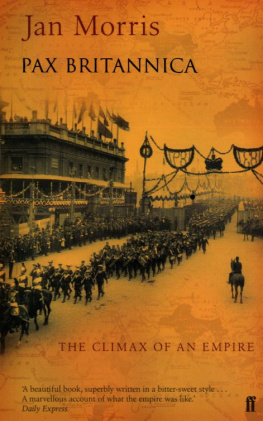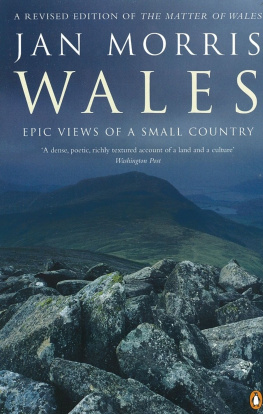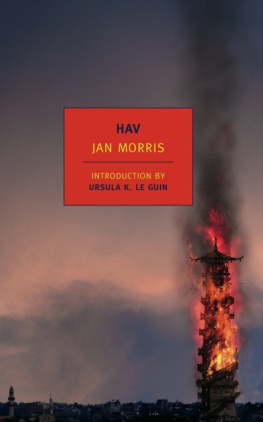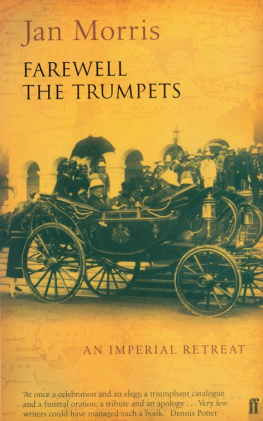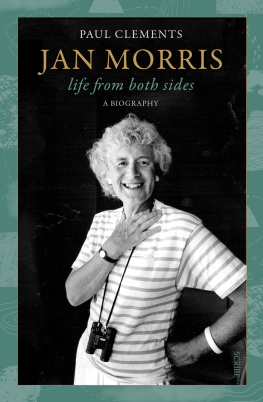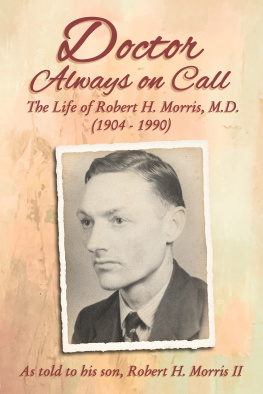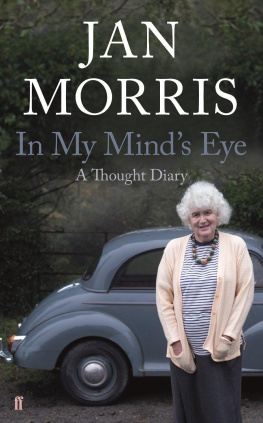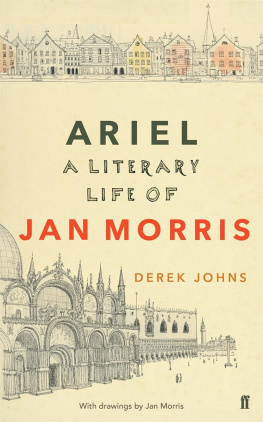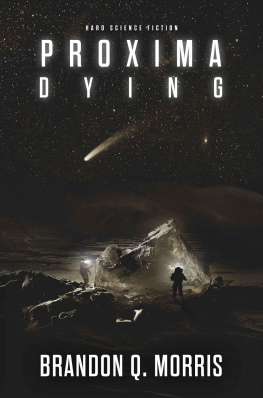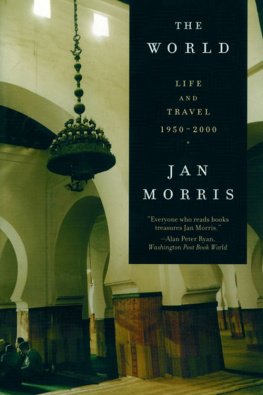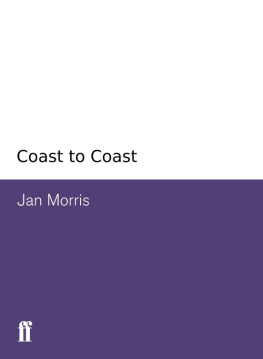
IN MY MINDS EYE
by the same author
HEAVENS COMMAND: AN IMPERIAL PROGRESS
PAX BRITANNICA: THE CLIMAX OF AN EMPIRE
FAREWELL THE TRUMPETS: AN IMPERIAL RETREAT
COAST TO COAST
CORONATION EVEREST
VENICE
OXFORD
CONUNDRUM
TRIESTE AND THE MEANING OF NOWHERE
A WRITERS HOUSE IN WALES
A WRITERS WORLD
EUROPE: AN INTIMATE JOURNEY
HAV
FISHERS FACE
DESTINATIONS
A VENETIAN BESTIARY
SPAIN
AMONG THE CITIES
THE GREAT PORT
THE HASHEMITE KINGS
HONG KONG
LINCOLN
THE MATTER OF WALES
MANHATTAN 45
THE MARKET OF SELEUKIA
SOUTH AFRICAN WINTER
THE SPECTACLE OF EMPIRE
CONTACT!
CIAO, CARPACCIO!
BATTLESHIP YAMATO
JAN MORRIS
IN MY MINDS EYE
A Thought Diary

LIVERIGHT PUBLISHING CORPORATION
A Division of W. W. Norton & Company
Independent Publishers Since 1923
New York / London
For
One and All
Kindlily
(and yes, there is such a word!)
DAY 1
I have never before in my life kept a diary of my thoughts, and here at the start of my tenth decade, having for the moment nothing much else to write, I am having a go at it. Good luck to me. The first thought that strikes me as being worth memorializing entered my mind today as I drove my dear old Honda Civic Type R (an old friend) into Porthmadog, and on the radio somebody was playing a piano concerto. I sort of knew the tune, but only just, and perhaps what I was remembering came from some other composition altogether? Then it occurred to me how amazing it is that there are still enough unused groupings of musical notes for people to write yet more piano concertos! Wont they ever run out?
And isnt it amazing that there are still all-too-familiar combinations of notes or harmonies, ones I know all too well, that can still bring the tears to my eyes, especially when I am alone driving my car? Nobody to break the spell, I suppose, and perhaps, since my first concentration is upon the driving, the music slides in unaware, like another old friend reminding me of half-forgotten emotions.
DAY 2
In our anguished world of the twenty-first century, when the United States of America I have long cherished is subsumed like everywhere else in squalor and disillusion, I often look back nostalgically to the America I first knew essentially, in my memory, small-town America. I got to know scores of little towns then, scattered across the entire subcontinent. I had a home for a time in one of them, and I grew to think of them generically as examples of everything I most admired about the great republic.
They were invariably welcoming, almost invariably frank, simple in their loyalties and, well, very nice! Yes, they were very nice places, I used to think, in a very nice country, and jejune though that sounds now, with better adjectives at my command, I remember their essential niceness still.
In those days, of course, sixty or seventy years ago, the mystique of the American small town was more fashionable. Thornton Wilder had made it so, with his play Our Town, and popular songs often serenaded it. Like me, they preferred to ignore unhappier truths about Main Street its likely racism, its probable greed and possible petty corruption and remembered only its provincial virtues. I am older and more cynical now, but I still prefer to remember those old stereotypes, with the housewives nattering and the volunteers swapping tall tales at the fire station, and the friendly handful of black people, and the swanky young bloods showing off when the town pond froze at Christmas.
With those fond, if fanciful, memories, too, went a related patriotism, bold but genial, to which I happily subscribed. As a national heritage I am devoted to my own British past, because I like the colour and eccentricity of it, the effrontery, the mixture of greed and benevolence, the admirable, the unforgivable, the bombast and the humour all of which is still best expressed, I think, by the ambiguous epic of the late British Empire, to which I have devoted much of my life.
But the Pax Britannica was, of course, famously nationalistic, and when it comes to a profounder kind of patriotism, it strikes me that the old American sort was far grander and truer, based as it was not upon triumphs, but upon the original generous values of the republic. If I were to choose a new national anthem for the USA, I would choose the words by Emma Lazarus that are inscribed upon the plinth of the Statue of Liberty. They welcome the worlds masses, tired, hungry and oppressed, through the Golden Gates to freedom, and I would sing them to the setting written in 1949 by a refugee from Russian Siberia.
And I would have it sung, if possible, by the Mormon Tabernacle Choir of Salt Lake City, who originally modelled themselves wait for it upon the male voice choirs of my own dear Wales.
DAY 3
Conscience doth make cowards of us all, the man said, but my conscience simply makes me ashamed of myself, and is often not quite powerful enough to curb my inner devil. A person I very much dislike lives quite near me, and when I drove home in todays heavy rainstorm I noticed that four or five items of her washing were flapping on her line in the rain. She is away on holiday, and Conscience prodded me. Shouldnt I stop and take the things in out of the wet? Nobody else will.
So what? said my personal Beelzebub. Theres nothing on that line but a few old socks, dusters and stuff. Why should she care if they got wet?
Conscience disagreed. They may not look much to you, it said, but perhaps they are precious to her.
Beelzebub: More fool her for leaving them there.
Conscience: I thought your lifes motto was Be Kind?
Beelzebub: Believe me, if it was your things that were getting wet, she most certainly wouldnt bother about them.
Conscience: Well, Im not her, am I?
Beelzebub: No, thank goodness, you dont go around being goody-goody and thinking youre better than anyone else. Besides, you know very well that she is a person you very much dislike. Remember?
By God, youre right, I told him, and hurried straight home out of the rain.
DAY 4
In the middle of the night I awoke with the need to have a shit (a marvellously expressive word, you must agree, and first recorded in English, so my OED tells me, in 1308; Tom Wolfe once recorded thirty-two distinct usages of it).
This was a new annoyance for me, and leads me to record now all the symptoms of senility, or worse, that afflict me in my tenth decade: (1) loss of physical balance; (2) forgetfulness; (3) excessive urination; (4) a sort of freezing sensation in my toes at night; (5) more or less permanent catarrh; (6) miscellanious pains in my abdomen, back, spine, heart region and stomach; (7) inability to spell perfectly familiar words like miscellaneous; (8) bubbles in my ears; (9) irritability; (10) envy; (11) fading pleasures of wine (I used to claim that I had drunk a glass of wine every day since the Second World War; now I sometimes go a week without one!); (12) embarrassing forgetfulness of names, faces or acquaintanceships (is there such a word?); (13) excessive literary reliance upon the exclamation mark.
And now, to cap it all, the nocturnal need to defecate. But, anyway, it all adds up to that most maddening of all afflictions: old age, or senility. To my mind the Bible was sensible to suggest seventy as a proper span of human life. John Donne was perhaps a little pessimistic to suggest that we love nobly, and live, till we arrive to write three-score, but Shakespeare was dead right, as always, to warn us that our seventh age would be unquestionably the worst of them all.
Next page
